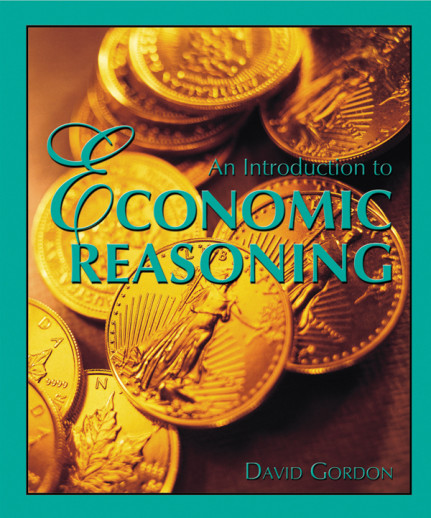We use cookies to make your experience better. To comply with the new e-Privacy directive, we need to ask for your consent to set the cookies. Learn more.
Introduction to Economic Reasoning
SKU
018698
ISBN
9780945466284
Grade 9-12
These icons are designed to help you quickly understand and learn important information about our products.
Teaching Method
Traditional
Teacher-centered curriculum commonly used in classrooms that may include a text, teacher manual, tests, etc.
Charlotte Mason
A methodology based on the work of a 19th century educator who maintained that children learn best from literature (Living Books), not textbooks.
Classical
A methodology based on the Latin Trivium (three stages of learning), including the grammar stage (memorization and facts), logic stage (critical thinking), and rhetoric stage (developing/defending ideas).
Unit Study
A thematic or topical approach centered around one topic that integrates multiple subject areas.
Montessori (Discovery)
A methodology based on the work of a 20th century educator that emphasizes student and sensory-driven discovery learning and real-life applications.
Other
Other methodologies
Religious Content
Secular
Contains content contrary to common Christian beliefs (i.e. evolution).
Neutral
Avoids religious or theoretical topics or presents multiple viewpoints without preference.
Christian/Religious
Faith-based or including instructional religious content.
Learning Modality
Auditory
Learns through listening, talking out loud or reading out loud.
Visual
Learns through seeing, prefers written instructions and visual materials.
Kinesthetic/Tactile (Hands-On)
Learns through moving, doing and touching.
Multi-Sensory
Curriculum that employ a variety of activities/components.
Presentation
Sequential
Curriculum progresses through well-defined learning objectives. Emphasizes mastery before moving to the next topic.
Spiral
Topics and concepts are repeated from level to level, adding more depth at each pass and connecting with review.
Conceptual/Topical
Focus is on the “why,” often with a unifying concept as well as specific skills; coverage may be broader.
Teacher Involvement
Low Teacher Involvement
Student-led materials; parent acts as a facilitator.
Medium Teacher Involvement
A mix of teacher-led time and independent student work.
High Teacher Involvement
Teacher-led lessons; may utilize discussions, hands-on activities and working together.
Additional Materials Required
No other materials needed
Everything you need is included.
Other Materials Required
There are additional required resources that are a separate purchase.
Other Materials Optional
There are additional resources mentioned or recommended but are not absolutely necessary.
Consumable
Consumable
Designed to be written in; not reusable.
Non-Consumable
Not designed to be written in; reusable.
Our Price
$12.75 Description
The Austrian school of economics is characterized by a strictly deductive approach (as opposed to the historical aspects of other schools of economic thought) and is grounded firmly in the idea that a sound economy depends on allowing people to act freely. Serving as an introduction to Austrian economics by presenting the logical reasoning behind the discipline, this book begins with the "action axiom" (men will act) and from it deduces powerful theorems law of demand, how prices coordinate demand and supply, etc. The underlying fundamental lesson is that it is possible to think in a systematic way about economics. Written in understandable language with humorous touches, there are discussion/thought questions throughout (no answer key, though). 195 pgs, pb. ~ Janice
Details
| Product Format: | Paperback |
|---|---|
| Brand: | Sheridan Publishing |
| Author: | Dr. David Gordon |
| Grades: | 9-12 |
| ISBN: | 9780945466284 |
| Length in Inches: | 9.75 |
| Width in Inches: | 8 |
| Height in Inches: | 0.75 |
| Weight in Pounds: | 1.0875 |
Videos
Reviews

